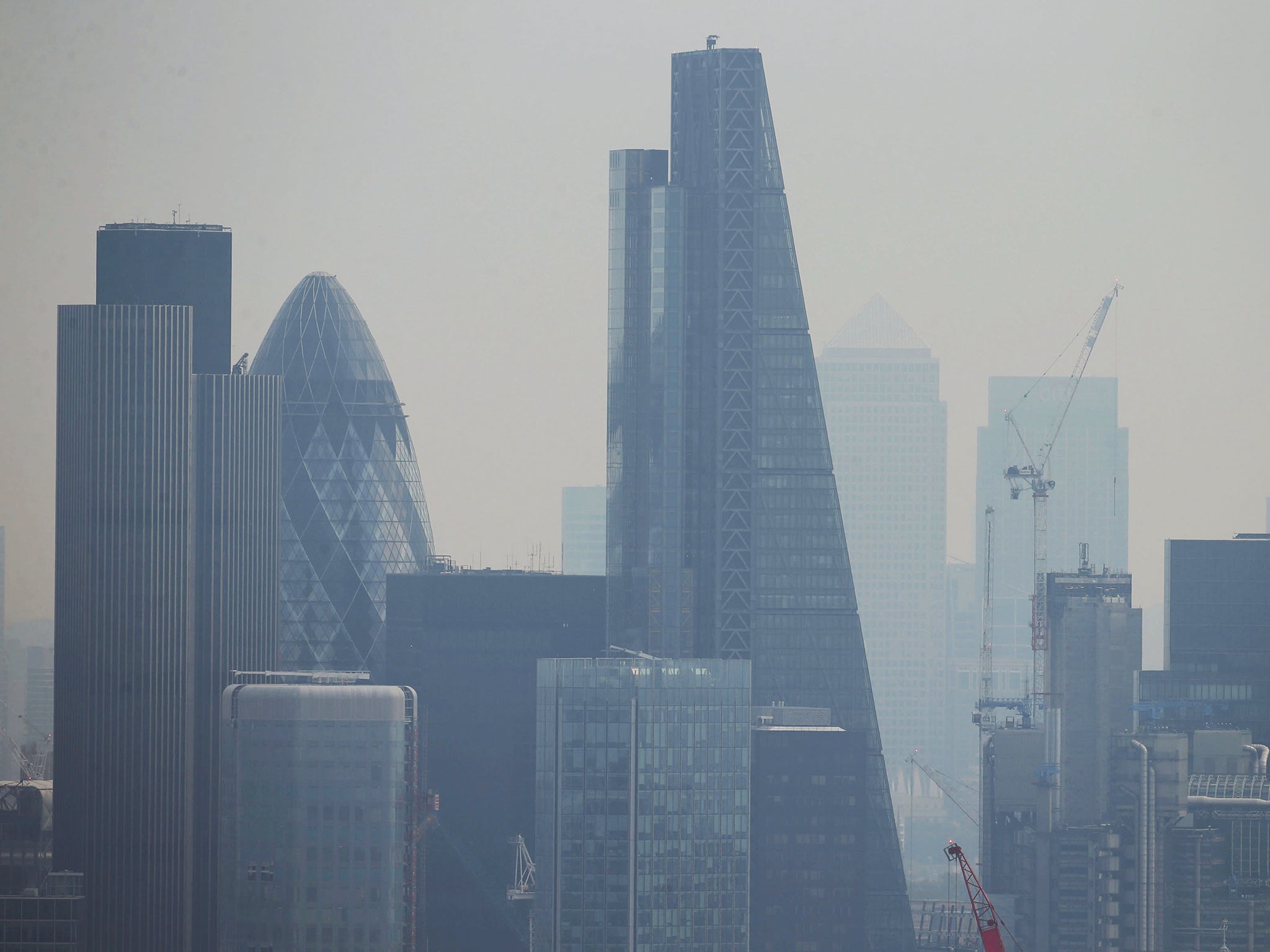Labour promises to raise £26bn through new 'Robin Hood tax' on trading in City of London
Jeremy Corbyn's party says it also wants to make people earning over £1m a year file their tax returns publicly

Your support helps us to tell the story
From reproductive rights to climate change to Big Tech, The Independent is on the ground when the story is developing. Whether it's investigating the financials of Elon Musk's pro-Trump PAC or producing our latest documentary, 'The A Word', which shines a light on the American women fighting for reproductive rights, we know how important it is to parse out the facts from the messaging.
At such a critical moment in US history, we need reporters on the ground. Your donation allows us to keep sending journalists to speak to both sides of the story.
The Independent is trusted by Americans across the entire political spectrum. And unlike many other quality news outlets, we choose not to lock Americans out of our reporting and analysis with paywalls. We believe quality journalism should be available to everyone, paid for by those who can afford it.
Your support makes all the difference.Labour has announced it will target City of London traders with a “Robin Hood tax” on financial deals if it wins power in next month’s general election.
Jeremy Corbyn’s party said it would extend a current 0.5 per cent stamp duty on share dealing to cover other forms of trading and claimed the move could raise more than £5bn a year.
It comes after a leak of Labour’s draft manifesto revealed a slew of spending plans that included state ownership of railways and energy, and the reversal of some welfare reforms. Mr Corbyn later promised “full costings” of the plans.
The party, which according to polls faces a heavy defeat on 8 June, also announced a pledge to crack down on tax avoidance by the “super-rich” and divert the revenue to public services.
It would force people earning over £1m a year to file their returns publicly, and “large companies” to put their tax records in the public domain at Companies House.
Shadow Chancellor John McDonnell said in 2015 he was against introducing a new financial transactions tax unilaterally in the UK.
But on Saturday he said the policy would “make the financial sector pay its fair share after it received huge public bailouts in the crash”.
He added: “All we’re asking for is fairness in our tax system. By making those who trade in financial derivatives pay a small fraction of their profits, we can help properly fund our public services.
“Ordinary people are still being made to pay by the Tories for a crisis they didn’t cause through the worst spending cuts for generations.”
Calling for the tax in an article for The Independent in 2015, Mr Corbyn admitted Labour bore responsibility for the 2008 financial crash, “not because we spent too much, but because we didn’t regulate enough”.
He also said a Robin Hood tax would put “sand in the wheels of the speculative and destabilising activity that led to the crash” as well as raising money for the Treasury – language closely mirrored in Labour’s latest announcement.
The party’s statement said it wanted to “eliminate the most destabilising forms of speculative high-frequency trading”.
Labour said it would impose a levy on derivatives transactions of 0.5 per cent for non-financial companies, and of 0.2 per cent for financial companies like banks and hedge funds.
The same levels of tax would apply to bonds trading, excluding UK Government gilts, while stamp duty reserve tax rules would be changed to remove the so-called “market maker exemption”.
The Conservatives branded the plan a “shambles”.
Jane Ellison, the Financial Secretary to the Treasury, said: “This is a total shambles from Jeremy Corbyn. The transaction tax has been described as ‘madness’ by his own Mayor of London because it risks economic growth and jobs, and just weeks ago in Parliament, Labour blocked measures to stop almost £9bn worth of tax avoidance.
“Since 2010 we have recouped an extra £140bn in tax that would have otherwise been avoided or evaded. Under the strong and stable leadership of Theresa May, we will relentlessly go after those who do not pay their fair share.”
Vince Cable, Shadow Chancellor for the Liberal Democrats, said: “Labour have already put our Financial Service sector at risk by backing Theresa May’s extreme plans to leave the single market and puts advanced manufacturing industry at risk by leaving the customs union.
“Jeremy Corbyn is happy to propose these unworkable solutions because he has no interest in being in Government or in standing up to the Conservative Party.
"Anyone who wants to see sensible reform of our banking system, that ensures they pay their fair share but doesn’t put their future in the UK at risk, should vote for a real opposition – and vote Liberal Democrat.”
Dr Neil Bentley, then the deputy director-general of the CBI, said in 2011 when European leaders were trying to gain support for a Robin Hood-style levy that it was a “crude instrument”, likely to increase the cost of capital for businesses and hold back their expansion.
Other elements of Labour's proposed 17-point tax avoidance programme include a ban on Government contracts for companies that avoid tax, and sanctions against tax havens.
It would also oblige MPs to declare all offshore holdings in the register of members’ interests.
Join our commenting forum
Join thought-provoking conversations, follow other Independent readers and see their replies
Comments